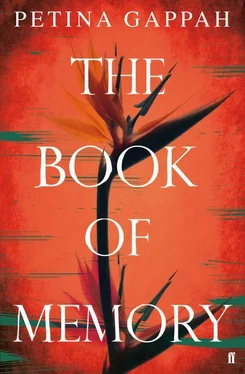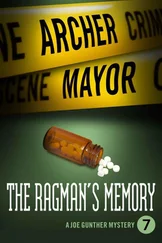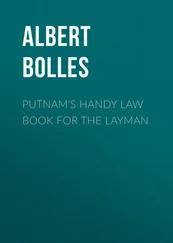My efforts paid off. I did well enough to get the scholarship, and I was admitted to read history at Sidney Sussex in Cambridge.
In the first days I wrote to him long, discursive letters about my lectures and tutorials. Alexandra would say, as she said at the trial, that I wrote to him only to ask for money. She produced letters in which money was a constant complaint.
When I left, I did not come back. The only time that I returned home was for a month in the first year of my postgraduate degree. In that year, Lloyd had been on sabbatical leave in America.
I met Simon, I studied, I travelled, I was happy. I won’t tell you much about Simon; he mattered to me then but does not matter to this story. The distance blunted the painful memories. The distance also allowed me to give more space to the circumstances that had brought us together. I wanted to ask why he had bought me.
But I kept it to myself. Even when I met Simon I could not tell anyone. That, like all my attempts to connect, soon fizzled away, and I was free from all the explanation and analysis that talking would have required. I had eventually come to forget it; I did not care about forgiving because forgiving meant actively remembering. I did not want to forgive because I did not want to remember.
After university, I was barely in the same place for more than six months at a time. A few months before my studies ended, one of the fellows at my college had recommended that I continue on to doctoral work. He also recommended that I spent a year at an East Coast university in the United States. I had the idea to convert my thesis on the Mutapa into something bigger. I planned to go to Portugal. I would even register for language classes at the University of Lisbon.
And then I was seized with a lassitude that made the smallest task seem like endless labour. To get to the United States required me to apply for a visa. I collected the forms; I put everything together. Then I did nothing. The thought of taking the train to London, following up on papers, submitting my passport for a visa, exhausted me. I was tired, too tired to do anything; all of it seemed too difficult; everything seemed too difficult. And so I stayed where I was, taking any job that came my way until I decided that it was finally time to go home.
*
I came back to a country whose outlines I recognised, but which was different in the details. I had not been home in more than ten years. So I was not there to see for myself how quickly everything had gone wrong. All that had happened in my absence — the political paralysis, the economic collapse — had been nothing more to me than news headlines. Now it revealed itself everywhere. You arrived after everything had calmed, after the political settlement, but Vernah, who was here throughout everything that happened, can tell you all about it. It is different for Vernah and people like her, for people who were here all the time.
I had not prepared Lloyd for my arrival. I wanted to believe that he had forgiven me, but the possibility of another rejection kept me quiet.
I called him from the airport in Johannesburg, and told him simply that I would be on the flight that landed in three hours. He was waiting for me at the airport when I landed. As I saw him again after all that time, it was as though I was seeing him for the first time, really seeing him. Had he always looked so weathered? It seemed as though someone had taken out his spine and he was collapsing in on himself. And what had happened to his hair?
He waved down at me from the transparent platform overlooking the arrivals hall at the airport. I did not know what I would say to him, how I would tell him about the revolution in my ideas and feelings. Would I ever be able to talk about Zenzo? How would I overcome the constraint that had arisen between us, how would I cross the distance of all those years? I did not know how to begin to tell him all the things that I wanted to say; how to tell him that I was sorry for my betrayal.
My bags were searched and I was allowed through. I blinked in the bright light as I walked through the glass doors.
‘Mnemosyne,’ said Lloyd as he put his arms around me and lifted me off my feet.
And as I hugged him tightly, I realised that he knew already all that I wanted to say, and that it was unnecessary ever to say anything because he knew all that I wanted to say even without my saying it.

Since Loveness overheard Jimmy and Benhilda telling Monalisa that the Commissioner forced the guards to vote for the ruling party, or else they would lose their jobs, she has not brought me any more newspapers. She came to my cell during lock-up and yelled at me through the bars. I have been telling the others things they should not know, she shouted, and she had trusted me, and look what I was doing, did I want things to go back to what they had been, before the papers and the favours?
There was no point in arguing, especially as she was right that the information came from me. Since the opposition women left, the election is the talk of the prison. From the snatches we overhear from the guards, from the information filtered through visiting Sundays, it is clear that something big is happening outside, perhaps something big enough to affect us here.
Verity came back from the hospital with more news. She collapsed at the prison farm three days ago. Patience and Mathilda half-dragged, half-carried her to the sanatorium, where she lay groaning on the bed until Synodia grudgingly signed release papers for her to be taken to hospital. It was appendicitis: she returned with her appendix removed and news of the victory, her dimples straining against her face.
It was hard to resist Verity’s infectious excitement as she described the spontaneous celebrations she glimpsed through the grille of the prison truck.
Things would change, she predicted. Now she would really get out. Her connections would pay off.
‘But I thought that your connections were all on the side that has lost. Isn’t this bad news for you?’ said Jimmy.
‘I have friends where it matters’ was Verity’s cryptic answer, and she went back to telling us all the things that she would buy in Dubai the minute she landed there. Next to her, Benhilda and Beulah spoke happily about the food that would come, and the blankets too. They only seemed uncertain about whether the new government’s magnanimity would extend to fizzy drinks.
We stopped talking when Synodia and Loveness came to inspect the shirts we had ironed. Synodia looked more sour than usual, and Loveness was shorter than usual in her commands. Jimmy could not resist and said, ‘Congratulations, Mbuya Guard, on the new government.’
Synodia sneered and said, ‘Pwongratulations, pwongratulations. Don’t talk as if it is your father’s government.’
Patience added that there was nothing to celebrate because the new president would be leading a government of people who barely spoke English. ‘They are all alphabets,’ she said. ‘Literate alphabets.’
Jimmy said, ‘Well, it is still better because the last president led a government of thieves.’
Patience gave her two weeks of sanitary duty.
The excitement is less to do with a new government than with the certainty of an amnesty. ‘There will be an amnesty international after the election,’ said Verity. ‘There is always one after an election.’
‘What Amnesty International now?’ said Monalisa. ‘What do you mean, Amnesty International?’
‘You know what I mean. Prisoners are allowed to go after an election,’ said Verity.
‘Then why are you calling it Amnesty International?’
Читать дальше













